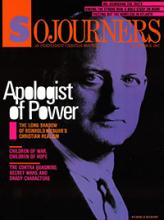In Washington these days, the great unanswered question about the Iran-contra scandal is the nostalgic Watergate favorite, "What did the president know, and when did he know it?" Congressional committees and a special grand jury will spend most of 1987 seeking the answer. But the real mystery about the whole affair is why anyone is surprised by it.
White House aide Oliver North's involvement in illegal funding of the contras was exposed almost two years ago. Israel's arms sales to Iran have been an open secret for even longer. Given the unique nature of the U.S.-Israeli relationship, which since 1983 has been closer than ever, it took no Sherlock Holmes to suspect that those sales had the approval, and perhaps the complicity, of our own government even before the hostage bartering began.
Both of these policies involved law-breaking of the sort for which the impeachment provisions of the Constitution were written. Both involved the waging of war in direct violation of the will of the people as expressed in acts of Congress, which should fit any definition of "high crimes and misdemeanors." But instead the Iran-contra controversy has come to focus less on the administration's secret wars than on the relatively narrow issue of funds transferred from one illegal military operation to another.
That should come as no surprise either when we recall that Richard Nixon didn't face impeachment for the secret murders in Cambodia and Chile, but for the considerably lesser charge of obstructing justice. The fact is that secret military and paramilitary operations carried on by a secret government with no accountability to democratic institutions have been business as usual in post-war America. Acceptance of such operations is part of the 40-year-old bipartisan Cold War consensus, and every president since Harry Truman has engaged in them.
Read the Full Article

